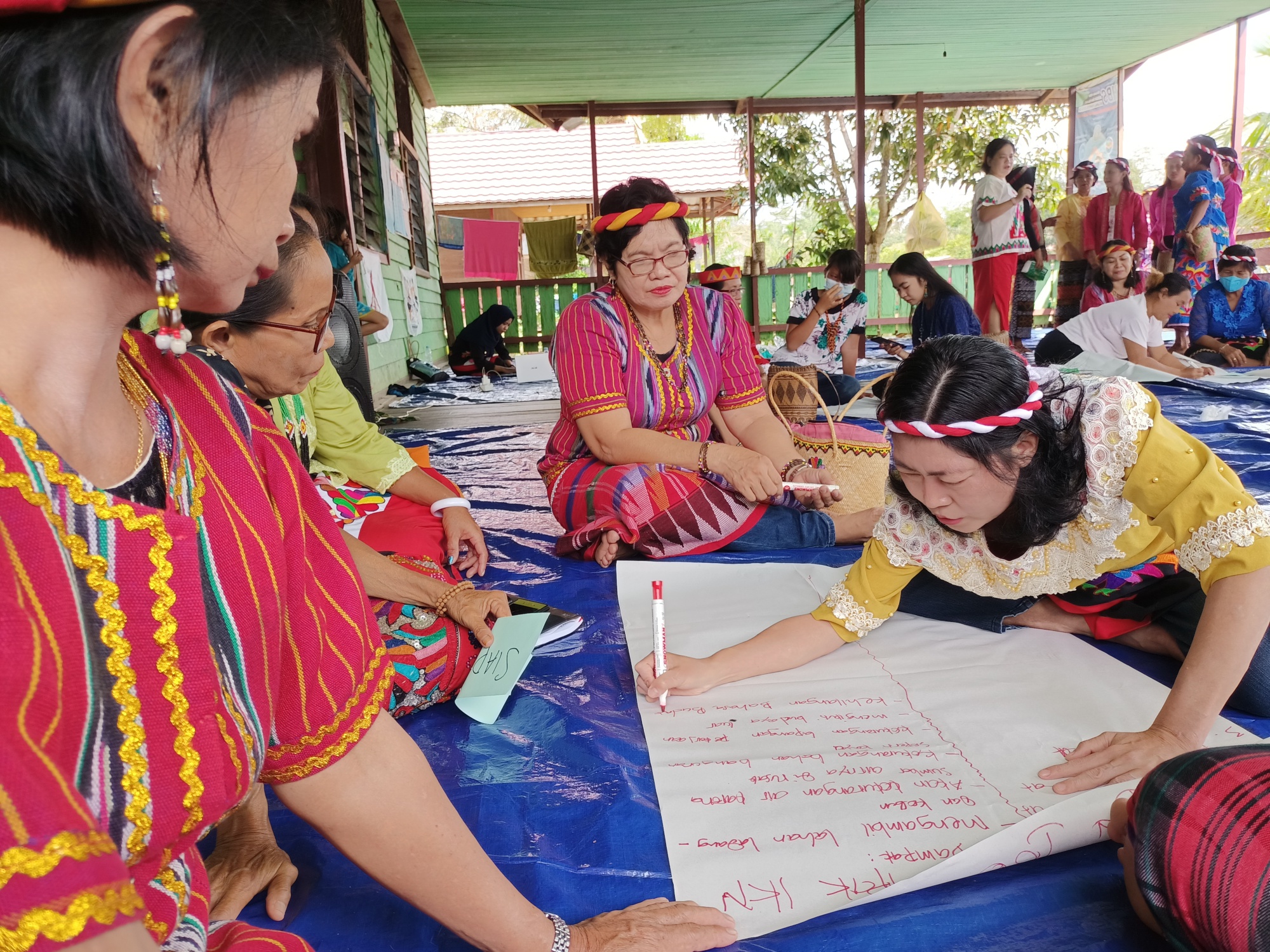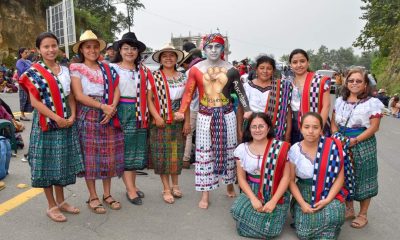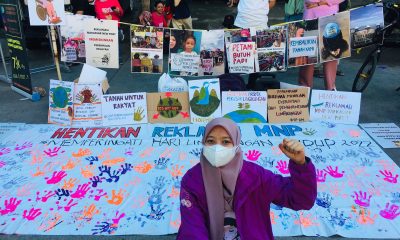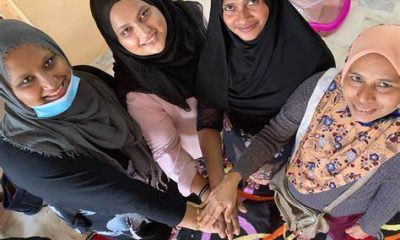By Laura Carlsen Km. 148 is a nodal point on the Interamerican Highway that connects…

A proposed New Capital City (NCC) project in the East Kalimantan province of Indonesia poses a significant threat to the livelihoods and lands of the people in the area. With an estimated cost of 32 billion, NCC plans to move the country’s capital from Jakarta to a forested section in the province. Pipi Supeni, a 34-year old indigenous woman leader from the Dayak Benuaq community in this territory, has been fighting to defend the land and identity of her people for many years. “This is the biggest [issue] that we are fighting right now. Some of the villages will be turned into railways and others into water reservoirs,” explains Pipi.
Pipi is a member of Forum Aktivis Perempuan Muda Indonesia (FAMM Indonesia), a network of 380 young women, formed following years of participating in JASS Southeast Asia’s regional leadership schools. She is currently the secretary of the Regional Daily Management of PEREMPUAN AMAN (or Association of Indigenous Women of the Archipelago), which works to uphold the rights of indigenous women in Indonesia. Lou Bawe is the local chapter of PEREMPUAN AMAN in East Kalimantan.
The NCC project is the latest addition to a long line of extractive industries in East Kalimantan. The region has a history of illegal logging, which has been largely replaced by the palm oil industry, currently the leading cause of deforestation in the province. “I believe that this is my calling. If we lose our territory, we will lose our livelihood and everything that we stand for,” adds Pipi.
Whose (so called) “development”?
“In East Kalimantan, forty percent of our territories are occupied by extractives. It is disheartening. The government is using the magic word ‘development’ and it is difficult to go against their version of ‘development’, says Pipi. Women who defend land and territory, such as Pipi, are often labeled as “anti-development” and threatened or attacked when they fight back or speak out. “When [a project is proposed in the name of development] – [we know] this will rob us of our right to speak up, to govern ourselves, and to organize,” explains Pipi.
Governments and elites often use a deliberate strategy of labeling communities who resist as “anti-development” to silence their activism and cause conflict and divisions within communities. In Indonesia, the government uses the media to perpetuate negative messages about women land and territory defenders, portraying them as poor, backward, lacking higher education, and unable to participate in the “modern” economic system. This serves to not only discredit their work, but also to further exclude and discriminate against them.
Compounding this issue is the fact that the government does not recognize them as indigenous peoples. “They refer to us only as local community residents. Therefore, there is no recognition from the Indonesian government to protect our rights as indigenous peoples, especially indigenous women,” says Pipi.
Despite these concerted efforts to intimidate women and undermine their organizing, indigenous women like Pipi are exposing the damaging impacts of the extractive model of development and proposing alternatives that can save the future of our planet. “Indigenous women have… the knowledge that is passed down from their ancestors. These capacities and knowledge are not recognized by the general community. We are fighting for acknowledgement,” explains Pipi.
Tools for challenging extractives
In 2021, JASS and the Count Me In! Consortium partners created a toolkit called “Behind the Scenes of Extractives: Money, Power, & Community Resistance,” which is aimed at supporting women land defenders in their activism against extractive industries. The toolkit, based on several years of research, helps women identify the drivers and actors behind extractive projects, providing critical knowledge for them to activate and leverage collective power for greater accountability.
During 2022, JASS organized regional workshops to launch the toolkit. In Indonesia, members of PEREMPUAN AMAN-Lou Bawe participated in a series of workshops based on the toolkit (which was translated in Bahasa), including the “Follow the Money: Activists’ Tools for Challenging Extractives” dialogue. The toolkit has been highly relevant to PEREMPUAN AMAN-Lou Bawe’s work, and they have already applied several key components of the toolkit. Despite the mobility limitations caused by several Covid-19 surges, PEREMPUAN AMAN-Lou Bawe made significant progress in their local-level advocacy. “We have been active in the national-level processes on navigating extractives, using the toolkit as a guide. We believe that this toolkit will particularly help community organizers like us who are facing the impacts of these destructive projects,” says Pipi. This was a historic achievement since some local government officials had previously viewed them as adversaries due to their vocal opposition to extractives and other forms of harmful development projects.
Catalyzing collective leadership and power
Pipi and her Dayak Benuaq recognize the need to build a strong and united community to sustain their struggles and achieve their goals. “… right now, we are training young people to revive our collective spirit…We will be defeated if we do not strengthen ourselves. We need networks…,” says Pipi. To achieve this, they use various strategies for organizational strengthening, such as creating safe spaces and organizing reflection sessions for their indigenous women members.
JASS facilitates safe spaces that foster an environment of political trust, where women can openly and honestly discuss their fears, risks, and conflicts. Pipi has adopted this approach in her organization PEREMPUAN AMAN-Lou Bawe: “The safe space is used to share, to reflect and to listen to our needs as women, because women have particular and special needs,” says Pipi.
Pipi is optimistic about the future. She believes that a crucial factor in their success is to continue building and regenerating the movement leadership of indigenous women in PEREMPUAN AMAN-Lou Bawe. “We continue to reach out to young indigenous women. The new young women members will become the future leaders of PEREMPUAN AMAN-Lou Bawe. The indigenous youth will catalyze the growing movement for indigenous peoples rights and against development aggression,” concludes Pipi.




























